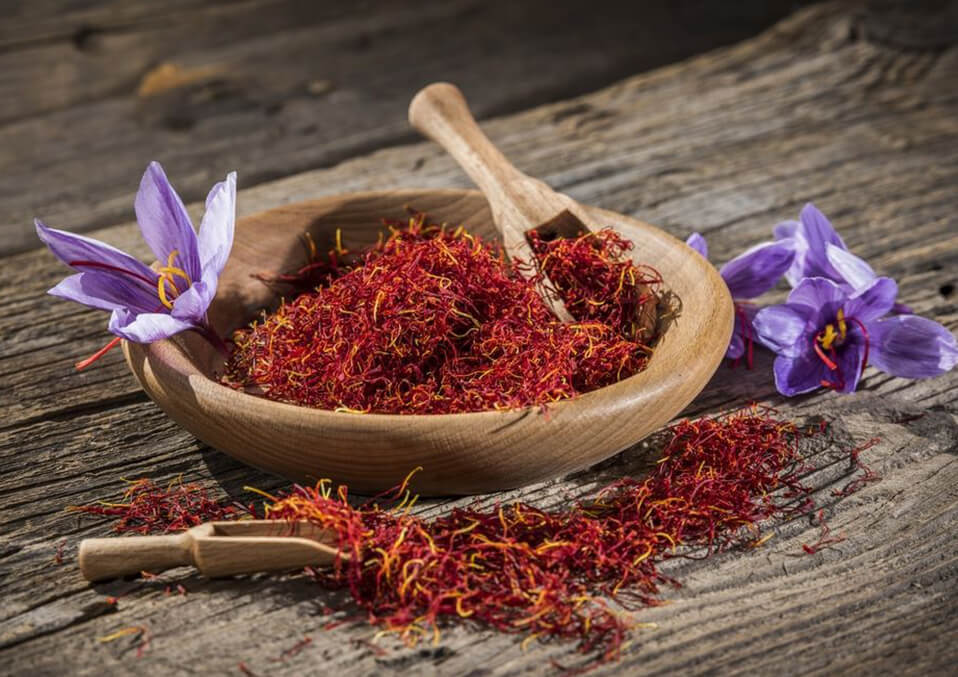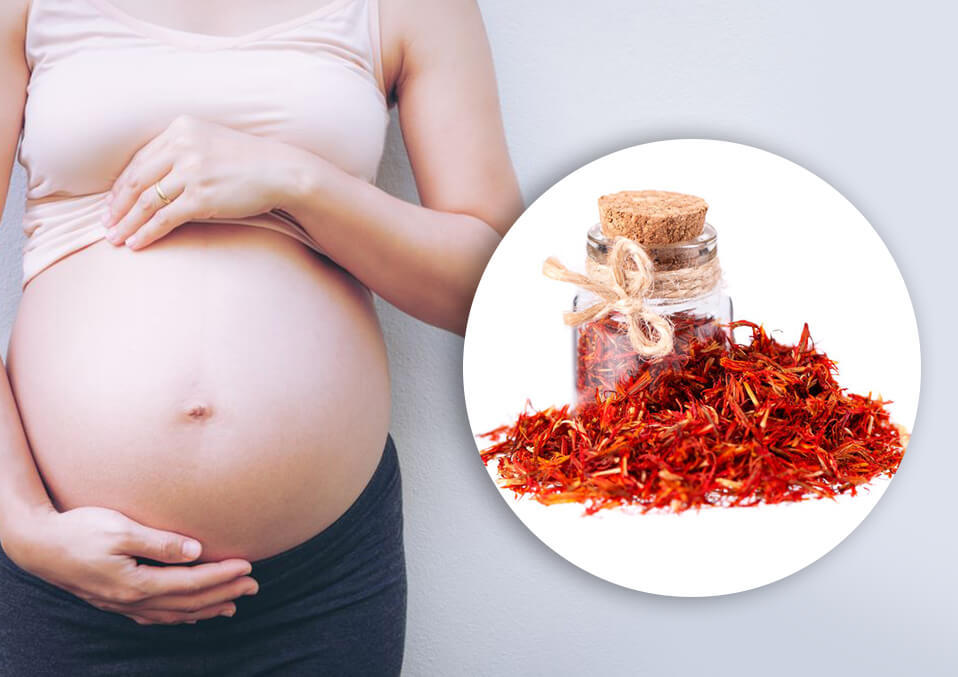Saffron is known as one of the most expensive spices in the whole world. People pay good many for a few grams, and with good reason—saffron has a warm, unique and earthy zing to it that no other spice has. You can incorporate it into any dish and beverage, and it will for sure give it a spicy kick. Popularly used in curry recipes and heart-warming brews, saffron is a household spice that can easily be bought and added anywhere.
Due to its versatility, saffron has amassed some myths to its reputation. An old wives’ tale says that saffron can be good for pregnant mothers who desire a fair-skinned baby. While this has no hard factual basis behind it, it is important to ask: is saffron healthy for a pregnancy? This article will help you debunk myths and hearsay about the spice, and help you identify the facts. Read on!
What is saffron?

Saffron is a type of spice that is derived from the plant Crocus Sativa or the Saffron Crocus. When dried and distributed, it takes on a vivid red color and is sold in threads. Saffron is the most expensive spice worldwide by weight, due to its versatility and the labor required to harvest it. Ancient Greeks have used it for perfumed oils, and the Chinese have long since incorporated saffron into their alternative medical apothecaries. Thanks to its many uses, saffron is a healthy addition to one’s spice rack.
Saffron’s medicinal qualities have been taken advantage of throughout history by different civilizations. It is used as an alternative remedy for asthma, cough, pertussis or whooping cough, and to loosen phlegm. It can also help with insomnia, artherosclerosis, chronic pains, and heartburn. Some doctors recommend saffron intake to help manage cancer, depression, night terrors, and Alzheimer’s disease.
It is also highly recommended for women who experience cramps during menstruation, due to its anti-inflammatory and anti-spasmodic properties. Saffron can also be used as an aphrodisiac.
Saffron in pregnancy: is it safe?

Saffron is safe to consume in pregnancy, but only in small, measured amounts, and preferably only around the second trimester (around the fifth month). A small measured amount for those who are pregnant is at most four strands or threads (roughly 20 to 30 milligrams). A unanimous account by doctors say that the healthy maximum amount of saffron should not exceed ten grams—any more will result in bleeding, uterine contractions, and in extreme cases wherein a large quantity has been consumed, premature labor and/or abortion.
Its benefits for someone who is expecting are:
- Good digestion. The astringent qualities found in this spice aids in cleansing the digestive tract and improves blood flow.
- Lessened pain. You can say goodbye to constant cramping!
- Better sleep. Saffron has sedative properties that can help the body and brain relax and keep stress at a low level.
- Better heart health. This spice’s anti-inflammatory qualities can keep your cholesterol levels at a minimum.
- Controlled blood pressure. Studies show that the elements in saffron, mainly crocin and safranal, can control high blood pressure.
- Lighter moods. Because saffron is an antidepressant, the anxiety and common mixed emotions due to the stress of pregnancy is controlled and lowered!
Due to the expense of getting the pure form of the spice, the saffron you might be able to get your hands on now is adulterated or has additives and extenders, which is normal and okay to consume. What pregnant women should steer clear of is a saffron extract, which contains higher and more potent amounts of crocin and safranal, which can be very dangerous to a developing child. Always ask your local spice provider to make sure of the difference when purchasing!
Healthy ways to consume saffron in pregnancy

There are so many recipes and brews online that incorporate saffron! One popular way to do it is by mixing up a warm glass of saffron milk. Take a few strands of saffron and add to warm milk and stir—it’s that simple! Soaking saffron in milk is said to aid in a pregnant woman’s sleep cycle due to its sedative effects. It can also be mixed in other dairy products, but warm milk is best.
Saffron can also be crumbled and added to meals! You can take a few strands and add it to any dish you’re preparing—a few strands will do because saffron can be quite intense and can pack a flavor punch, not to mention it’s side effects on your pregnant body. Four strands can be a maximum for a single serving of a meal. You can add it to soups and broths to give them more body, to rice as a savory garnish, to desserts for its aroma, or to meats for that added kick!
Tips on purchasing and storing saffron
Because saffron is so expensive, it may be difficult to get it pure. Getting adulterated versions is all right and pretty common, but make sure to check its package label for trademarks, expiry dates, and manufacturing details. Buy only from a well-known store or brand, to be extra sure!
Once you’ve bought your saffron, store it in an airtight container and keep it out of direct sunlight, preferably in a cupboard. Sunlight and air can affect its aroma and taste, and make its shelf life way shorter, so store accordingly. Alternatively, you may wrap the threads in foil, keep in an airtight container, and let sit in your refrigerator. This way, your saffron will keep for months, as it should.
Pregnancy is a wild ride with many restrictions. That being said, always be careful about what goes in and out of your body at this crucial time! Even the littlest things, such as spices, matter, and care should go into preparing everything and anything you want to include in your diet. Saffron may just be a spice, but in pregnancy, side effects are magnified and can be critical if left unchecked. Always err on the safe side and frequently consult your healthcare provider about things you may be unsure of—there’s no harm in being too sure!
Read Also:
- Is Sudafed Safe During Pregnancy?
- How To Use Cinnamon For Abortion!
- Is It Safe For Baby To Sleep With Momaroo?


